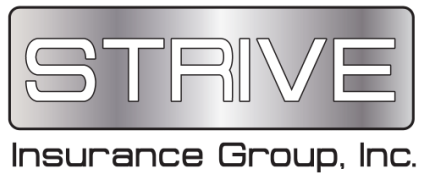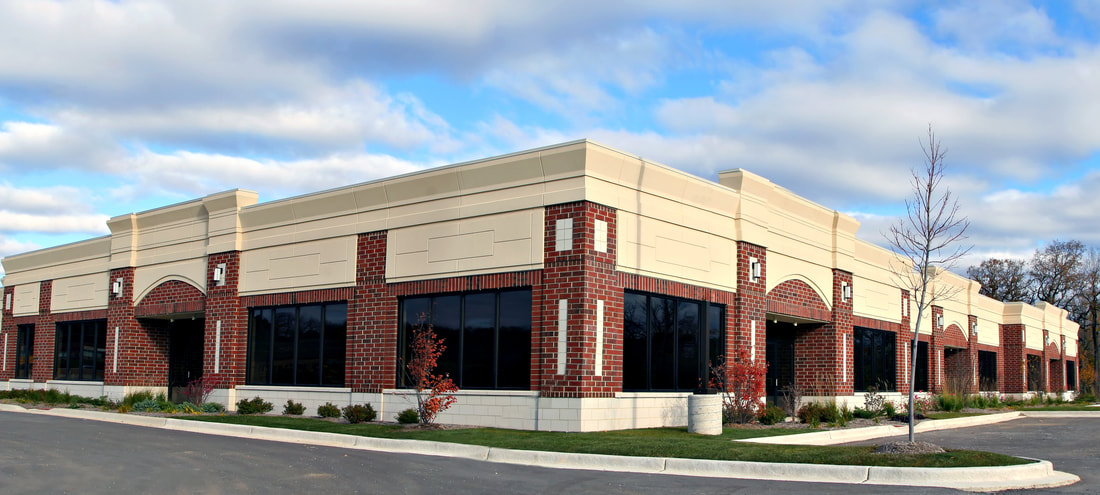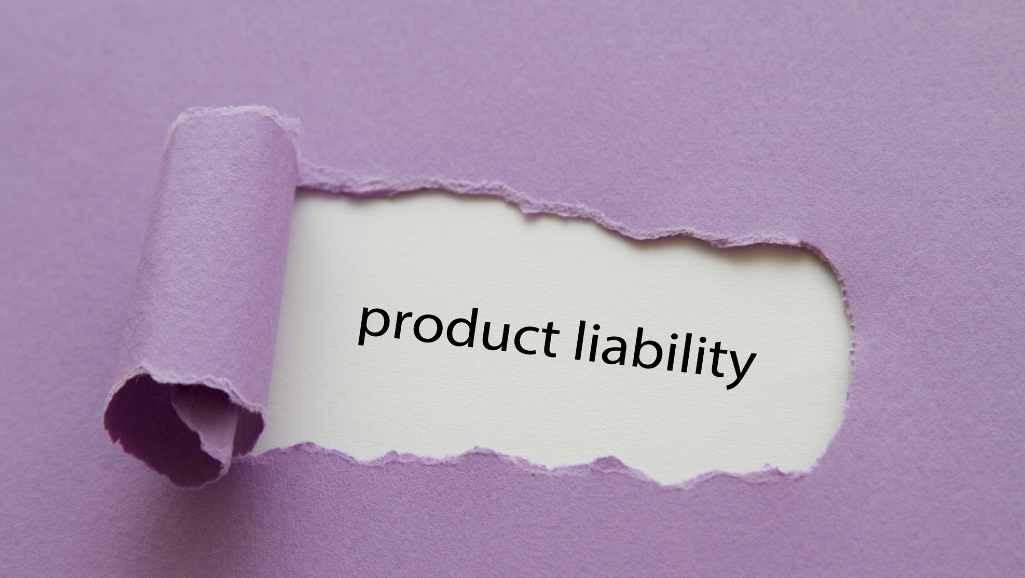|
The medical device industry plays a pivotal role in global healthcare by providing tools and technologies that diagnose, prevent, monitor, and treat a wide array of diseases and conditions. However, the development, manufacturing, and distribution of medical devices entail significant risks, necessitating comprehensive insurance coverage to protect against potential liabilities. Here are three critical types of insurance every medical device business should consider:
1. Product Liability Insurance What It Covers: Product liability insurance is essential for any business that designs, manufactures, or sells medical devices. This type of insurance protects the company if a product it sells causes bodily injury or property damage to a third party. Given that medical devices can directly impact patient health, the risks are particularly high. Product liability claims can arise from manufacturing defects, design flaws, or inadequate instructions/warnings. Why It’s Important: In the medical device field, even a small defect can lead to significant adverse outcomes for users. The costs associated with defending these claims and any resultant settlements can be astronomical. Product liability insurance helps ensure that a company can survive financially after such claims. 2. Professional Liability Insurance What It Covers: Also known as errors and omissions (E&O) insurance, this coverage is crucial for businesses involved in the service side of medical devices, such as providing training on equipment use, maintenance, or calibration. It protects against claims of negligence or harm that result from mistakes or failure to perform. Why It’s Important: Medical device businesses often provide highly technical and specialized advice and services. Errors in these areas can lead to serious consequences, potentially harming patients and exposing the business to liability. Professional liability insurance helps cover the legal costs and any damages awarded, protecting the company’s financial health. 3. Cyber Liability Insurance What It Covers: Cyber liability insurance is increasingly important for medical device companies, especially those involved in producing and managing devices connected to the internet or other networks (IoMT - Internet of Medical Things). This insurance covers the risks related to data breaches, cyber-attacks, and other technology-related vulnerabilities, including costs related to recovery, notification, legal fees, and any resulting fines or penalties. Why It’s Important: Medical devices often handle sensitive patient data, making them a target for cybercriminals. A breach can compromise patient privacy, result in regulatory penalties, and damage the company’s reputation. Cyber liability insurance helps mitigate these risks by providing financial and expert support in the event of a cyber incident. Navigating the complexities of the medical device industry requires a thorough understanding of the risks involved. By securing product liability, professional liability, and cyber liability insurance, medical device businesses can safeguard their operations, protect their financial stability, and maintain their reputation in a competitive and rapidly evolving market. Together, these insurance coverages form a robust shield against many of the common hazards these businesses face, allowing them to focus on innovation and growth with peace of mind. In the life sciences industry, we know you have to innovate to stay ahead. Companies in the industry compete and strive to be the first to develop new drugs, supplements, medical devices, and technologies that promote better health. Let us put together a specialized Life Sciences Insurance solution that minimizes loss potential and protect your bottom line. In today's litigious society, where multimillion-dollar lawsuits can arise from simple accidents or unforeseen events, businesses must ensure they have adequate protection beyond standard liability policies. This is where commercial umbrella insurance steps in, offering an additional layer of security that can be crucial for a business’s survival. Here’s why every business should consider adding commercial umbrella insurance to their risk management strategy:
1. Extended Coverage Limits What It Offers: Commercial umbrella insurance provides additional coverage when the limits of your underlying liability policies (like general liability, auto liability, and employers' liability) are exhausted. For example, if a lawsuit costs $2 million to settle and your general liability covers only $1.5 million, your umbrella policy can cover the additional $500,000, thus protecting your business assets from being used to cover the shortfall. Why It’s Important: Businesses often face risks that can result in claims exceeding standard policy limits. Umbrella insurance acts as a safety net, ensuring that a business isn't crippled financially by a single incident. This is especially important in high-risk industries or those prone to large liability claims. 2. Broader Coverage What It Offers: Besides providing higher limits, commercial umbrella insurance sometimes covers claims that are not included in primary liability policies. This can include certain legal fees, contractual liabilities, and liabilities over business practices that may not be typically covered under standard policies. Why It’s Important: The broad nature of coverage under umbrella insurance means that businesses can be protected against unforeseen gaps in their primary insurance policies. This comprehensive coverage is vital for peace of mind and continuous business operations, particularly in dynamic environments where unexpected legal challenges can arise. 3. Cost-Effectiveness What It Offers: Commercial umbrella insurance is generally cost-effective, especially compared to the increase in limits it provides. Premiums are relatively low because the umbrella policy only kicks in after the primary insurance limits are reached, which makes it a less frequently used policy. Why It’s Important: For a relatively small additional cost, businesses can significantly increase their liability coverage. This makes commercial umbrella insurance an efficient way to boost total coverage without proportionately increasing insurance costs, providing substantial financial protection relative to the investment. 4. Reputation Protection What It Offers: By ensuring that claims can be settled fully and promptly, umbrella insurance helps in protecting a business’s reputation. Handling claims efficiently prevents negative publicity and maintains customer trust. Why It’s Important: A business’s reputation is one of its most valuable assets. In the event of a large claim, having the financial backing to resolve issues swiftly and fully can help avert potential reputation damage, which can be costly and difficult to recover from. 5. Peace of Mind What It Offers: With umbrella insurance, business owners can have peace of mind knowing they are protected against catastrophic losses that could potentially bankrupt their operations. Why It’s Important: Running a business involves managing daily risks. With the protection of an umbrella policy, business owners can focus more on growth and less on the potential for devastating financial implications from lawsuits. Commercial umbrella insurance is an essential component of a comprehensive business insurance strategy. It not only extends the limits of existing liability coverages but also ensures broader protection, making it an indispensable safeguard for businesses aiming to secure their future against the uncertainties of high-cost liabilities. Texas is renowned for its vibrant culinary scene, from mouthwatering barbecue joints to upscale dining establishments. Behind the scenes of these culinary delights, restaurant owners navigate a complex landscape of risks and liabilities unique to the hospitality industry. To ensure a recipe for success, every Texas restaurant must have a robust insurance portfolio tailored to its specific needs. In this blog, we explore the five essential insurance coverages that can protect restaurants across the Lone Star State.
1. General Liability Insurance: General liability insurance serves as the foundation of protection for Texas restaurants. It provides coverage for third-party bodily injury, property damage, and personal injury claims that may arise on the restaurant premises. From slip-and-fall accidents to foodborne illness claims, general liability insurance shields restaurant owners from potential lawsuits and financial liabilities, preserving their reputation and financial stability. 2. Property Insurance: Property insurance is essential for safeguarding the physical assets of Texas restaurants, including buildings, equipment, furnishings, and inventory. In the event of fire, theft, vandalism, or natural disasters such as hurricanes or tornadoes, property insurance provides coverage for repair or replacement costs, ensuring that restaurants can recover swiftly from losses and resume operations without major disruptions. 3. Liquor Liability Insurance: For restaurants that serve alcohol, liquor liability insurance is a crucial coverage to consider. Texas law holds businesses accountable for injuries or damages caused by intoxicated patrons served alcohol on their premises. Liquor liability insurance protects restaurants against claims related to accidents, fights, or other incidents involving intoxicated customers, helping to mitigate the financial risks associated with alcohol service. 4. Workers' Compensation Insurance: Restaurant employees are exposed to various hazards in the workplace, from hot surfaces and sharp utensils to slippery floors and heavy lifting. Workers' compensation insurance is mandatory in Texas and provides coverage for medical expenses, lost wages, and disability benefits for employees injured on the job. By prioritizing employee safety and compliance with state regulations, restaurant owners demonstrate their commitment to a supportive and responsible work environment. 5. Business Interruption Insurance: Business interruption insurance provides crucial financial protection for Texas restaurants in the event of unexpected closures or disruptions to operations. Business interruption insurance covers lost income, ongoing expenses, and additional costs incurred during the period of interruption. This coverage helps restaurants navigate challenging times and maintain financial stability until normal operations can resume. In the competitive and dynamic landscape of Texas' restaurant industry, success is not just about serving delicious food—it's also about managing risks effectively. By investing in essential insurance coverages tailored to their needs, Texas restaurants can protect their assets, mitigate liabilities, and focus on what they do best: delight customers with memorable dining experiences. With the right insurance protection in place, restaurants can savor the taste of success in the Lone Star State. 3/20/2024 Why Medical Offices Need InsuranceNavigating the Essentials for Protection In the healthcare sector, medical offices serve as critical touchpoints for patient care, providing a wide array of services from routine check-ups to specialized treatments. Given the sensitive nature of healthcare services and the potential for financial, legal, and reputational risks, it's imperative for medical offices to have comprehensive insurance coverage. The Necessity of Insurance for Medical Offices Medical offices are exposed to a variety of risks that can arise from their operations, including professional errors, accidents on the premises, data breaches, and more. Insurance plays a vital role in managing these risks by providing financial protection and support in case of legal actions or claims against the office. Without adequate insurance, a single lawsuit or unforeseen event could potentially devastate the financial stability and operational continuity of a medical practice. Critical Types of Insurance for Medical Offices 1. Professional Liability Insurance (Malpractice Insurance) Professional liability insurance, commonly referred to as malpractice insurance, is paramount for any medical office. This coverage protects healthcare providers against claims of negligence or harm resulting from their professional services. Given the complexity of medical treatments and the potential for adverse outcomes, malpractice insurance ensures that medical practitioners can defend against claims and pay out settlements or judgments without jeopardizing their financial well-being. 2. General Liability Insurance General liability insurance covers non-professional operational risks, such as bodily injury or property damage that could occur within the medical office premises. For instance, if a patient slips and falls in the waiting room, this insurance can cover medical costs for the injured party and legal fees if the practice is sued. It's a fundamental coverage that addresses common accidents or injuries that can happen in any business setting. 3. Cyber Liability Insurance With the increasing reliance on electronic medical records and digital healthcare platforms, medical offices are prime targets for cyber attacks. Cyber liability insurance provides protection against risks related to data breaches, loss of patient information, and cyber extortion. This type of insurance can cover notification costs, legal fees, and fines associated with data protection regulations, as well as recovery and repair of compromised systems. 4. Property Insurance Property insurance is crucial for protecting the physical assets of a medical office, including medical equipment, office furniture, computers, and the building itself if owned by the practice. This coverage helps repair or replace property damaged by fire, theft, vandalism, or natural disasters, ensuring the office can recover and resume operations swiftly after an unexpected event. 6. Business Interruption Insurance Business interruption insurance compensates for lost income and covers operating expenses when a medical office is forced to close temporarily due to a covered event, such as a natural disaster or major equipment failure. This type of insurance is essential for maintaining financial stability during periods when the office cannot operate as usual. Insurance is not just a regulatory requirement for medical offices; it's a critical component of risk management and financial planning that safeguards the practice's future. By securing comprehensive coverage across these key areas, medical offices can protect themselves against a wide range of risks, from professional liability to property damage and beyond. Investing in the right insurance policies ensures that medical practitioners can continue to provide essential healthcare services without the looming threat of financial ruin due to unforeseen events or legal challenges. In today's litigious society, businesses face a significant risk from product liability claims, which can lead to substantial financial losses, damage to reputation, and even business failure. Product liability refers to the legal responsibility of manufacturers, distributors, and retailers for any injuries or damages caused by their products. Managing this risk effectively is crucial for any business involved in the production or sale of goods. Understand Your Legal Obligations Before diving into risk management strategies, it's vital to understand the legal framework surrounding product liability in your jurisdiction. This knowledge will guide your risk management policies and procedures, ensuring they are aligned with regulatory requirements and best practices in your industry. 1. Conduct Rigorous Testing Test your products thoroughly before launching them to identify and rectify potential hazards. This includes stress testing, usability testing, and ensuring compliance with industry standards. Regular testing of batches post-production can also catch issues before they reach the consumer. 2. Implement Quality Control Measures Establish strict quality control processes throughout the manufacturing and distribution phases. This includes regular inspections, auditing suppliers, and ensuring that all materials and components meet your safety and quality standards. Documentation of these processes is essential for demonstrating diligence in case of legal scrutiny. 3. Provide Clear and Comprehensive Instructions Many product liability claims arise from misuse due to inadequate instructions or warnings. Ensure that your products come with clear, easy-to-understand instructions for use, maintenance, and warnings about potential risks. Consider language barriers and use universal symbols where applicable. 4. Stay Informed on Industry Standards and Regulations Regulations and standards can change, and staying updated is crucial for compliance and risk management. Participate in industry associations, attend relevant conferences, and subscribe to updates from regulatory bodies. Compliance with current standards can significantly mitigate liability risks. 5. Engage in Proactive Customer Communication Maintain open lines of communication with your customers. Provide avenues for feedback and address complaints swiftly. If a product issue arises, a proactive recall or advisory notice can prevent injuries and demonstrate your commitment to customer safety, potentially mitigating liability. 6. Secure Adequate Insurance Coverage Despite your best efforts, the risk of liability claims can never be entirely eliminated. Ensure that your business has adequate product liability insurance to protect against potential claims. Regularly review your coverage to ensure it matches the scale and nature of your operations. 7. Document Everything Maintain meticulous records of your product design, testing, manufacturing, quality control, and customer communications. Documentation can be invaluable in defending against a liability claim, demonstrating your commitment to safety and due diligence. 8. Train Your Employees Ensure that all employees, especially those involved in design, manufacturing, and customer service, are trained in risk management practices. Regular training sessions can help instill a culture of safety and responsibility throughout your organization. Product liability claims can pose a significant risk to businesses, but by implementing these risk management tips, you can reduce the likelihood of claims and protect your business. Prioritizing safety in product design, adhering to quality control measures, providing clear instructions, and maintaining comprehensive insurance coverage are all essential steps in a robust risk management strategy. By fostering a culture of safety and responsibility, businesses can not only minimize the risk of liability claims but also enhance their reputation and customer trust. Property management comes with its own set of challenges and risks, making the right insurance coverage essential for protecting not just the physical property but also the financial stability of the business. Whether managing residential, commercial, or mixed-use properties, understanding and navigating insurance needs is critical. This blog provides practical insurance tips for property managers, ensuring they are well-equipped to handle unexpected situations.
Understanding the Basics of Property Management Insurance What Does Property Management Insurance Cover? Typically, property management insurance includes coverage for property damage, liability claims, loss of rental income, and sometimes, legal costs. The aim is to protect against common risks such as fire, theft, natural disasters, tenant injuries, and disputes. Essential Insurance Policies for Property Managers General Liability Insurance: Protects against claims of bodily injury or property damage for which you could be held responsible. This is the foundation of your insurance strategy. Property Insurance: Covers damage to the buildings you manage due to covered perils like fire, storm, or vandalism. Professional Liability Insurance (Errors and Omissions): Offers protection if you’re sued for negligence, errors, or failure to perform your duties as outlined in your contract. Workers’ Compensation Insurance: Essential if you employ staff or maintenance crews, covering medical costs and lost wages for work-related injuries or illnesses. Business Interruption Insurance: Provides compensation for lost income if the property becomes uninhabitable due to a covered incident. Umbrella Liability Insurance: Offers additional coverage beyond the limits of your other liability policies. Tips for Property Managers 1. Assess and Regularly Review Insurance Needs Your insurance needs can change over time with property acquisitions, new laws, or changes in the property management landscape. Conduct regular reviews of your policies to ensure coverage is adequate and up to date. 2. Understand Policy Details and Exclusions It’s crucial to understand what is and isn’t covered in your policies. Pay attention to exclusions, coverage limits, and deductibles. In some cases, you may need additional riders or endorsements to fully cover certain risks. 3. Educate Tenants about Renters’ Insurance Encourage or require tenants to have renters' insurance. This protects their personal property and provides liability coverage, which reduces potential claims against your insurance. 4. Maintain Property to Mitigate Risks Regular maintenance can prevent many issues that might otherwise lead to insurance claims. Implementing risk mitigation strategies like installing security systems, fire alarms, and regular inspections can also lower insurance premiums. 5. Work with an Experienced Insurance Broker Partner with an insurance broker who understands the unique challenges of property management. They can help you find the best coverage options and navigate complex insurance matters. 6. Consider the Needs of Each Property Individually Different properties have different risks. For example, a property in a flood-prone area might need additional flood insurance, which is not typically covered in standard property insurance policies. 7. Stay Informed about Legal Requirements Keep abreast of local and state laws regarding insurance requirements for property managers. Compliance not only keeps you legally protected but also ensures peace of mind. Effective insurance coverage is a crucial aspect of successful property management. By understanding the essentials, staying informed, and actively managing risks, property managers can protect their assets, tenants, and businesses from unforeseen events. Remember, insurance is not just a safety net; it's an investment in the stability and longevity of your property management endeavors. Strive Insurance Group, Inc. (formerly Gordon Lund Insurance Agency, Inc) is an independent insurance agency representing many insurance companies. This means that we quote with many different insurance companies to obtain the best rate and coverage for your insurance. We do this at no additional fee or service charge to you. Our insurance agency's reputation for representing the best insurance companies, providing excellent customer service and competitive pricing to our clients has been earned and proven for over 30 years. We take great pride in finding you the best coverage and backing it up with prompt personal service. The reality of business, particularly in manufacturing and retail, product liability claims can be very detrimental. These claims arise when a product causes harm or injury to a consumer due to defects in design, manufacturing, or marketing. Not only can they lead to financial losses through legal fees and settlements, but they can also tarnish a company's reputation. Therefore, it's essential for businesses to prioritize risk management strategies to minimize the occurrence and impact of product liability claims. Here are three effective tips to achieve this:
Rigorous Quality Control and Testing Procedures: Quality control and testing procedures are fundamental in identifying and rectifying potential issues with products before they reach the hands of consumers. Implementing stringent quality control measures throughout the manufacturing process can significantly reduce the likelihood of defects. This includes regular inspections at each stage of production, from raw material procurement to final assembly. Additionally, investing in comprehensive product testing, including stress testing and safety assessments, can help identify any weaknesses or vulnerabilities in the product design or functionality. By ensuring that products meet or exceed industry standards and regulatory requirements, businesses can mitigate the risk of product-related injuries and subsequent liability claims. Clear and Comprehensive Product Documentation: Clear and comprehensive product documentation is essential for ensuring that consumers understand how to use a product safely and effectively. This includes user manuals, warning labels, and product specifications. Providing detailed instructions for assembly, operation, and maintenance can help reduce the likelihood of accidents resulting from improper use or negligence. Furthermore, prominently displaying warning labels and safety notices can alert consumers to potential hazards and risks associated with the product. By proactively communicating product information and safety guidelines, businesses can demonstrate their commitment to consumer safety and minimize the risk of liability claims arising from misuse or lack of awareness. Robust Customer Support and Recall Procedures: Despite best efforts to produce safe and reliable products, issues may still arise post-production. In such cases, having robust customer support and recall procedures in place is essential for effectively managing product-related incidents and mitigating potential liability. Establishing clear channels of communication, such as dedicated customer service hotlines or online support portals, allows consumers to report problems or seek assistance promptly. Moreover, implementing a structured recall process enables businesses to swiftly address safety concerns by removing defective products from the market and providing remedies or replacements to affected consumers. By demonstrating transparency, accountability, and responsiveness in addressing product issues, businesses can minimize the impact of incidents on consumer trust and loyalty while reducing the likelihood of costly legal battles. Product liability claims pose significant risks to businesses, both financially and reputationally. By implementing proactive risk management strategies, such as rigorous quality control and testing procedures, clear and comprehensive product documentation, and robust customer support and recall procedures, businesses can minimize the occurrence and impact of product-related incidents. Ultimately, prioritizing consumer safety and satisfaction not only protects businesses from liability claims but also fosters trust and loyalty in their brand. Strive Insurance Group, Inc. (formerly Gordon Lund Insurance Agency, Inc) is an independent insurance agency representing many insurance companies. This means that we quote with many different insurance companies to obtain the best rate and coverage for your insurance. We do this at no additional fee or service charge to you. Our insurance agency's reputation for representing the best insurance companies, providing excellent customer service and competitive pricing to our clients has been earned and proven for over 30 years. We take great pride in finding you the best coverage and backing it up with prompt personal service. Safeguarding Innovation
In the dynamic and rapidly evolving landscape of biotechnology, where breakthrough discoveries and cutting-edge research drive progress, insurance plays a pivotal role in safeguarding the interests of firms operating in this sector. From startups to established companies, biotech firms face a unique set of risks and challenges that necessitate comprehensive insurance coverage. In this blog, we'll explore why insurance is indispensable for biotech firms and how it helps mitigate potential financial losses and protect against unforeseen liabilities. Protecting Intellectual Property: Intellectual property (IP) lies at the heart of biotech innovation, encompassing patents, trademarks, copyrights, and trade secrets. Biotech firms invest significant resources in research and development to create novel drugs, therapies, and technologies. However, the theft, infringement, or unauthorized use of IP can jeopardize a company's competitive advantage and undermine its market position. Insurance policies such as intellectual property insurance provide coverage against legal expenses incurred in defending IP rights and pursuing infringement claims. By safeguarding their valuable intellectual assets, biotech firms can mitigate the risk of IP-related disputes and preserve their innovations. Managing Clinical Trial Risks: Conducting clinical trials is a critical phase in the development and commercialization of biopharmaceutical products. However, clinical trials carry inherent risks, including adverse events, patient injuries, and regulatory non-compliance. Biotech firms must navigate complex regulatory frameworks and adhere to stringent safety standards throughout the trial process. Clinical trial insurance, also known as investigational product insurance, offers protection against liabilities arising from trial-related injuries, medical malpractice claims, and protocol deviations. This insurance coverage helps mitigate the financial impact of legal expenses, settlements, and damages, allowing biotech firms to focus on advancing their research objectives with confidence. Addressing Product Liability Concerns: The introduction of biotech products into the market carries inherent risks of product liability claims, particularly in the healthcare and life sciences sectors. Whether it's pharmaceuticals, medical devices, or genetically engineered organisms, unforeseen adverse effects or defects in products can lead to lawsuits alleging negligence, strict liability, or breach of warranty. Product liability insurance provides coverage for legal defense costs, settlements, and judgments arising from claims of bodily injury, property damage, or financial losses attributed to defective products. By obtaining adequate product liability insurance, biotech firms can mitigate the financial risks associated with product-related liabilities and protect their reputation in the marketplace. Ensuring Business Continuity: Disruptions to biotech operations, whether due to natural disasters, equipment failures, or regulatory challenges, can have significant ramifications for business continuity and financial stability. Business interruption insurance helps mitigate the financial impact of unexpected events by providing coverage for lost revenue, extra expenses, and temporary relocation costs incurred during periods of downtime. Additionally, contingent business interruption insurance extends coverage to losses resulting from disruptions to the operations of key suppliers, contract manufacturers, or distribution partners. By safeguarding against operational disruptions, biotech firms can maintain their competitive edge and sustain momentum in achieving their strategic objectives.' Insurance plays a vital role in safeguarding the interests of biotech firms and mitigating the diverse risks inherent in the industry. From protecting intellectual property and managing clinical trial risks to addressing product liability concerns and ensuring business continuity, insurance coverage provides a crucial safety net for biotech companies as they pursue innovation and drive progress in healthcare and life sciences. By partnering with experienced insurers and tailoring policies to their specific needs, biotech firms can navigate the complexities of risk management effectively and focus on advancing scientific breakthroughs that have the potential to transform lives. Strive Insurance Group, Inc. (formerly Gordon Lund Insurance Agency, Inc) is an independent insurance agency representing many insurance companies. This means that we quote with many different insurance companies to obtain the best rate and coverage for your insurance. We do this at no additional fee or service charge to you. Our insurance agency's reputation for representing the best insurance companies, providing excellent customer service and competitive pricing to our clients has been earned and proven for over 30 years. We take great pride in finding you the best coverage and backing it up with prompt personal service. As a property manager, you’re tasked with overseeing residential, commercial, or industrial real estate properties. While this role comes with many responsibilities, ensuring adequate insurance coverage is paramount to protect your business, your clients' assets, and yourself from unforeseen events. Here are three essential types of insurance coverage every property manager should consider:
1. General Liability Insurance Protection Against Common Risks What It Covers: General liability insurance is the cornerstone of a property manager's insurance portfolio. It provides protection against common risks such as injuries or property damage to third parties occurring on the property. Real-Life Scenario: Imagine a visitor slipping on an icy walkway at one of your managed properties. This insurance can cover the medical bills and legal fees if you're sued. Why It's Essential: This coverage is crucial because it addresses the most common risks associated with property management. 2. Professional Liability Insurance (Errors & Omissions) Safeguarding Your Professional Services What It Covers: Also known as Errors and Omissions (E&O) insurance, this policy protects against claims of negligence or inadequate work. Real-Life Scenario: If a tenant sues you for failing to fix a maintenance issue promptly, E&O insurance can help cover your defense costs and any resulting settlements. Why It's Essential: Property managers make decisions daily that could lead to lawsuits. This insurance provides peace of mind, knowing that your professional decisions are protected. 3. Property Insurance Direct Protection for Your Business Assets What It Covers: This insurance covers the physical assets of your business, including your office space, computers, and furniture, against risks like fire, theft, or natural disasters. Real-Life Scenario: If a fire damages your office, property insurance can help cover the repair costs and replacement of damaged equipment. Why It's Essential: As a property manager, your business relies on various physical assets. Protecting these ensures minimal interruption in your business operations following a loss. Investing in the right insurance coverages is crucial for property managers. It not only safeguards your business but also builds trust with your clients, showing them that their properties are in responsible hands. Always consult with an insurance professional to tailor your coverage to your specific needs and risks. Remember, being proactive about insurance can save you from significant financial and reputational damage in the long run. This blog provides a basic overview, but it's always recommended to consult with insurance experts for more detailed advice tailored to specific situations. The biotechnology industry, known for its ground-breaking research and innovation, is also a sector fraught with significant risks. From the uncertainties of research and development to the complexities of regulatory compliance, biotech firms navigate a landscape where the stakes are high. This is where insurance solutions play a pivotal role. Tailored insurance coverages can provide a safety net, mitigating the financial impact of various risks. Let’s explore the common risks faced by biotech firms and the corresponding insurance solutions that can help manage these challenges:
1. Research and Development (R&D) Uncertainties Mitigated by: Product Liability and Clinical Trial Insurance Risk Overview: The uncertain nature of R&D can lead to unexpected outcomes, including project failures or delays. Insurance Solution: Product liability insurance protects against claims related to product safety and efficacy. For clinical trials, specific insurance policies are available to cover the risks associated with testing on human subjects. 2. Regulatory Compliance Mitigated by: Regulatory Liability Insurance Risk Overview: Non-compliance with the myriad of regulations can result in legal and financial repercussions. Insurance Solution: Regulatory liability insurance can cover fines, penalties, and defense costs arising from regulatory actions, helping firms navigate legal complexities. 3. Funding and Liquidity Challenges Mitigated by: Business Interruption Insurance Risk Overview: Financial instability, often due to delayed or failed projects, can threaten a firm’s operations. Insurance Solution: Business interruption insurance can provide coverage for lost income and expenses during periods of unexpected downtime, ensuring financial continuity. 4. Intellectual Property (IP) Protection Mitigated by: Intellectual Property Insurance Risk Overview: IP breaches or disputes can lead to financial and reputational damage. Insurance Solution: Intellectual property insurance can cover legal costs associated with IP litigation, helping firms protect their most valuable assets. 5. Market Risks Mitigated by: Trade Credit Insurance Risk Overview: Market unpredictability can affect demand and profitability. Insurance Solution: Trade credit insurance protects against losses from unpaid invoices, providing security against market volatility and customer insolvency. 6. Ethical and Social Implications Mitigated by: Professional Liability Insurance Risk Overview: Ethical controversies or public backlash can lead to legal challenges. Insurance Solution: Professional liability insurance, including Errors and Omissions (E&O) coverage, can protect against claims of negligence or harm related to a firm’s services or products. In the biotech industry, a comprehensive risk management strategy is not complete without considering the right insurance solutions. These insurance policies provide a critical safety net, allowing biotech firms to focus on their core mission of innovation and development while mitigating the financial risks associated with their groundbreaking work. It is advisable for biotech firms to work closely with insurance professionals who understand the unique challenges of the industry, ensuring that their coverage meets their specific needs. Navigating the biotech landscape with the right insurance in place can make the difference between thriving amidst challenges and being overwhelmed by them. Remember, in biotech, the right insurance is not just a safety measure; it's an integral part of a successful business strategy. Strive Insurance Group, Inc. (formerly Gordon Lund Insurance Agency, Inc) is an independent insurance agency representing many insurance companies. This means that we quote with many different insurance companies to obtain the best rate and coverage for your insurance. We do this at no additional fee or service charge to you. Our insurance agency's reputation for representing the best insurance companies, providing excellent customer service and competitive pricing to our clients has been earned and proven for over 30 years. We take great pride in finding you the best coverage and backing it up with prompt personal service. |
Archives
June 2024
Categories
All
|











 RSS Feed
RSS Feed
4/16/2024
0 Comments